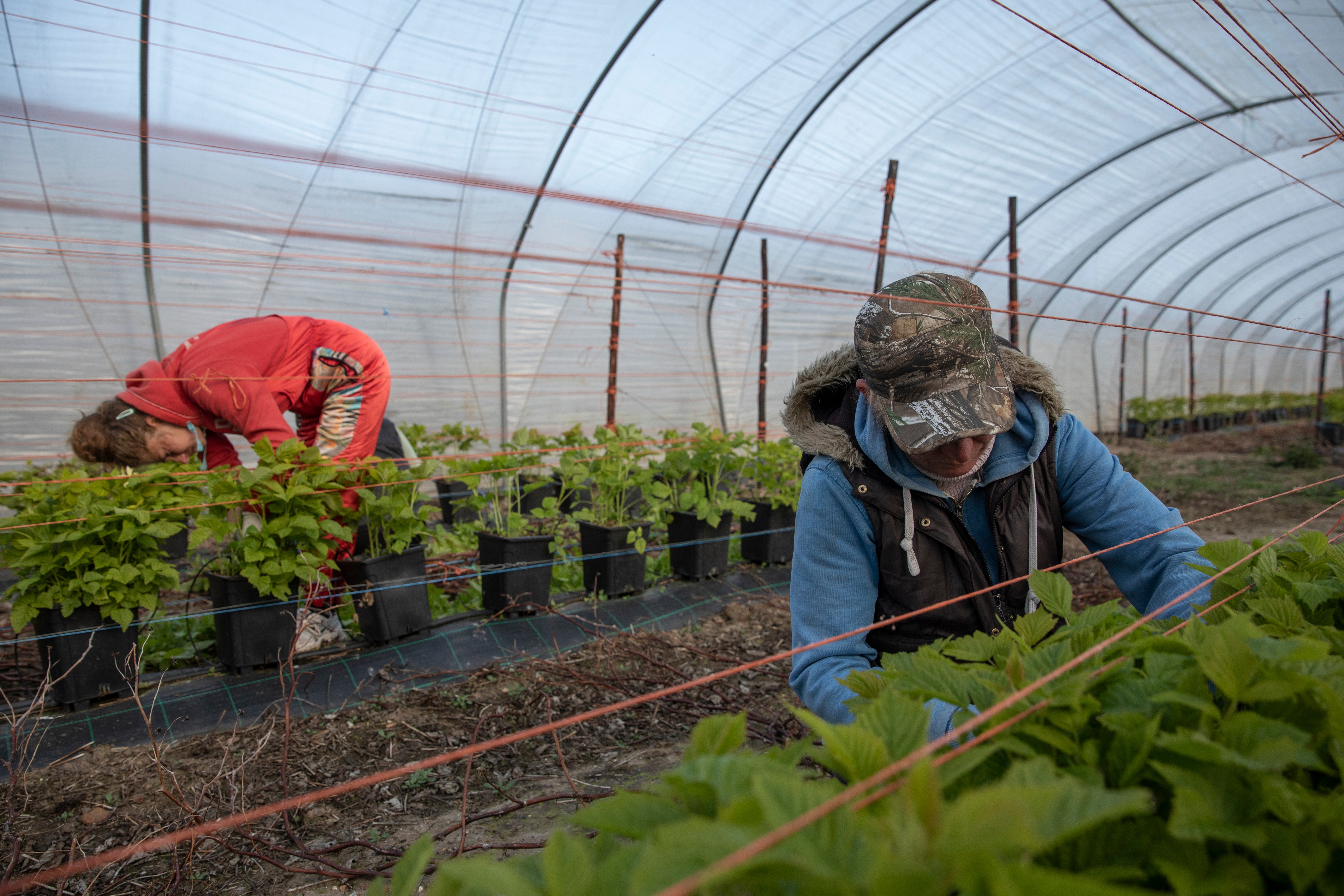Your support helps us to tell the story
From reproductive rights to climate change to Big Tech, The Independent is on the ground when the story is developing. Whether it's investigating the financials of Elon Musk's pro-Trump PAC or producing our latest documentary, 'The A Word', which shines a light on the American women fighting for reproductive rights, we know how important it is to parse out the facts from the messaging.
At such a critical moment in US history, we need reporters on the ground. Your donation allows us to keep sending journalists to speak to both sides of the story.
The Independent is trusted by Americans across the entire political spectrum. And unlike many other quality news outlets, we choose not to lock Americans out of our reporting and analysis with paywalls. We believe quality journalism should be available to everyone, paid for by those who can afford it.
Your support makes all the difference.It is six years today - 23 June - after the 2016 EU referendum, and Brexit has been delivered. But all is not necessary well.
Polling conducted by Savanta ComRes in October found that just 36 per cent think the project has been a success, with 52 per cent considering it a failure.
Here are six of the biggest enduring problems Brexit has caused to mark six years since the big vote.
1) Food rotting in Britain's fields

The end of free movement has made it harder and more bureaucratic for seasonal agricultural labourers to visit the UK, so many have cut it out of their annual schedule.
British residents have shown little interest in doing the piecework at UK farms, so thousands of tonnes of crops rotted in fields during the UK's picking season this year.
Tory MP Roger Gale, who represents the community of Thanet, is among Conservatives to sound the alarm. He told the prime minister in parliament that one grower in his constituency had had to trash hundreds of thousands of pounds of produce.
Ministers say the Department for Environment, Food and Rural Affairs and the Department for Work and Pensions are launching a campaign "to raise awareness of career opportunities" in crop picking among British workers.
But there appears to have been little success so far, with growers cutting output for the coming season for fear they will not be able to harvest what they plant.
Food industry leaders have warned that the situation is almost certain to worsen unless the government urgently extends a pilot scheme which allowed in 30,000 temporary workers this year.
The National Farmers’ Union has called on ministers to allow in at least another 50,000 foreign workers to pick crops, and tens of thousands more to process them.
2) Surging inflation

Britain is regarded as an "outlier" in the financial world for its particular high inflation, with analysts blaming Brexit.
While the cost of living crisis has many causes, out of all the G7 countries only in Britain are price increases so severe. The ONS on Wednesday confirmed annual inflation is now at a record 9.1 per cent.
Citigroup, Bank of America and Standard Bank are among US financial institutions to warn this week that UK inflation will be higher for years to come due to immigration controls and supply chain shortages.
“Inflation in the UK will be stickier over the medium to long-term because of Brexit,” said Vasileios Gkionakis, head of European FX strategy at Citigroup.
A report from the London School of Economics released in April found that new trade barriers have driven a 6 per cent increase in UK food prices – one of the contributing factors of surging inflation.
3) British fisherman facing ruin

New bureaucracy introduced by Brexiteers has hurt the UK's fishing industry, with some long-running firms forced to close due to the extra costs leaving the EU has imposed.
The situation is particularly difficult for exporters of shellfish who face not only new paperwork and catch certificates, but delays at the border that can spoil and entire time-sensitive consignment.
Boris Johnson has blamed exporters for not filling in forms correctly. Some shellfish exports to the EU are also now banned completely.
Fishing chiefs described the Brexit deal as a “betrayal” which failed to secure many promised benefits.
4) Meltdowns at UK airports

As Covid travel restrictions lift and international travel returns, another Brexit problem is emerging: airport chaos.
Largely disguised during the pandemic, airlines now say they do not have enough staff to cover surging demand and say EU exit is to blame.
Airline bosses such as Ryanair chief Michael O'Leary said the chaos was “completely to do with Brexit”.
Like in so many other sectors, the disruption appears to have has been caused by a shortage of workers. Jobs were cut back during Covid due to lower demand for two years: but now the aviation industry cannot recruit.
Steve Heapy, the CEO of airline Jet2, said EU withdrawal had taken “hundreds of thousands, if not millions” of people out of the jobs market.
The government blames mismanagement by airlines, but Mayor of London Sadiq Khan said ministers had to ensure that "those who were in those jobs before, who’ve gone back to their country of origin in the EU, are encouraged to come back".
5) A shortage of lorry drivers

The government was forced to launch an emergency visa scheme for lorry drivers last year after the country was faced with a 100,000 person HGV driver shortage.
While the shortfall has many causes, changes to rules following Brexit made it harder for drivers to work in the UK and customs procedures are said to have made their job more complicated – causing many to simply work elsewhere.
As of May 2022 Logistics UK says the number of HGV drivers in employment is still falling, but "not falling as significantly as in recent quarters". The industry group hopes this means the problem can be resolved soon.
6) Mobile roaming charges make a comeback

Anyone who got used to using their phone abroad in recent years will be in for a shock.
Roaming charges were abolished by the EU in June 2017, but they have made a comeback in a big way since Britain left the bloc.
Three, EE and Vodafone have all announced they will bring back roaming charges.

Join our commenting forum
Join thought-provoking conversations, follow other Independent readers and see their replies
Comments